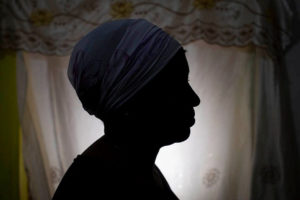In landmark ruling, refugee family wins asylum in Israel

Binto, a survivor of FGM who was granted asylum in Israel, says “I want them to stop doing this to girls everywhere. All women should be free and have control over their own bodies.”
Naomi Niddam writes in +972, February 13, 2020:
Israel’s High Court ruled on Sunday that the state must give asylum status to parents who emigrated from the Ivory Coast, and their two daughters who were born in Israel. By basing its reasoning on gender-based violence, rather than civil war or humanitarian crisis, the ruling is groundbreaking. Throughout the trial, the parents raised their concern that members of the extended family in the Ivory Coast would forcibly subject their daughters to genital mutilation (FGM) if Israel were to deport them.
This ruling is unprecedented: it’s the first time the High Court in Israel has exercised its judicial power to instruct the state to recognize asylum seekers as refugees. To date, the Interior Ministry’s policy has been to collectively reject asylum requests, often without a thorough examination of the cases. Of the tens of thousands of African asylum seekers in Israel, the state has only recognized 13 Eritrean refugees and one refugee from Sudan. Hundreds more have received humanitarian status, which can be renewed but in effect is only valid for a year. The courts often criticize this policy, or pressure the authorities to grant humanitarian status, but other than this case and another in the court of appeals, they have never used their judicial power to grant asylum status.
“The state has agreed to recognize [asylum] only in exceptional cases. The Eritreans who received status in the past were those who dared to prove that the danger to their life was associated with their sexual orientation, like transgenders and gay people,” explained Sigal Rozen, the public policy director at the Hotline for Refugees and Migrants. “In this case, the threat of violence is gender-based, by family members. But the Interior Ministry ignores more common grounds, such as dissenters or victims of genocide, because these will force it to recognize a larger number of refugees,” she added.
